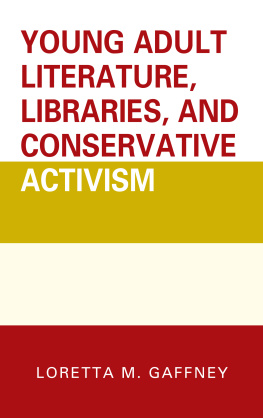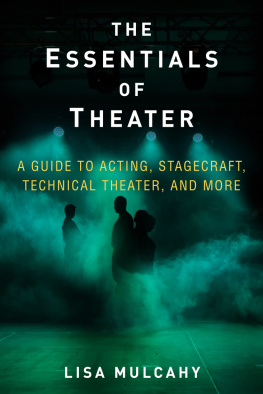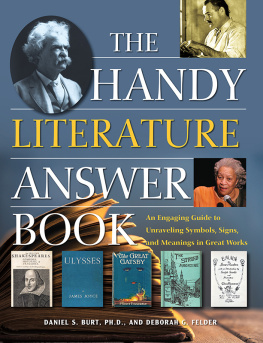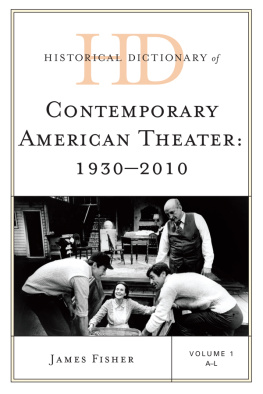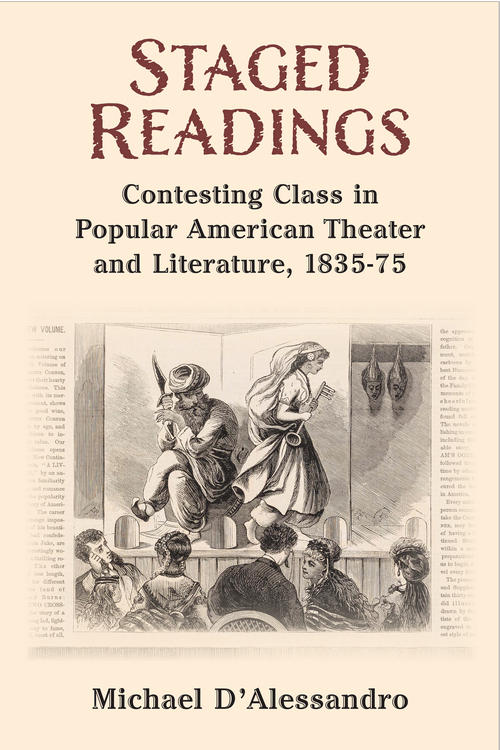
Page i Staged Readings
Page ii Page iii Staged Readings
Contesting Class in Popular American Theater and Literature, 183575
Michael DAlessandro
University of Michigan Press
Ann Arbor
Page iv Copyright 2022 by Michael DAlessandro
All rights reserved
For questions or permissions, please contact um.press.perms@umich.edu
Published in the United States of America by the
University of Michigan Press
Manufactured in the United States of America
First published September 2022
A CIP catalog record for this book is available from the British Library.
Library of Congress Cataloging-in-Publication Data
Names: DAlessandro, Michael F. (Michael Francis), author. | Michigan Publishing (University of Michigan), publisher.
Title: Staged readings : contesting class in popular American theater and literature, 1835-75 / Michael DAlessandro.
Description: Ann Arbor : University of Michigan Press, 2022. | Includes bibliographical references and index.
Identifiers: LCCN 2022017911 (print) | LCCN 2022017912 (ebook) | ISBN 9780472133178 (hardcover) | ISBN 9780472220588 (ebook)
Subjects: LCSH: Theater and societyUnited StatesHistory19th century. | Literature and societyUnited StatesHistory19th century. | Popular cultureUnited StatesHistory19th century. | Books and readingUnited StatesHistory19th century. | Social classesUnited StatesHistory19th century. | BISAC: PERFORMING ARTS / Theater / History & Criticism | LITERARY CRITICISM / American / General
Classification: LCC PN2248 D35 2022 (print) | LCC PN2248 (ebook) | DDC 792.0973090/34dc23/eng/20220519
LC record available at https://lccn.loc.gov/2022017911
LC ebook record available at https://lccn.loc.gov/2022017912
Cover: Illustration from Supplement to Frank Leslies Chimney Corner, 1869, depicting scene from Blue Beard tableaux. Courtesy American Antiquarian Society.
Page v For Carla and Theodore
Page vi Page vii Contents
Digital materials related to this title can be found on the Fulcrum platform via the following citable URL: https://doi.org/10.3998/mpub.12156758
Page viii Page ix Acknowledgments
This project began a very long time ago when I was a masters student at Yale University. As I developed a habit of reading temperance dramas in the dark, dank stacks of Sterling Library, I never dreamed it would turn into something legitimate. So first and foremost, I must thank my advisor at that time, Marc Robinson, both for turning me on to nineteenth-century melodrama and for expertly steering my interests. For their guidance and support during these years, I am also incredibly grateful to Alex Grennan, Catherine Sheehy, and Michael Walkup, all of whom I am still fortunate enough to call my friends.
Boston Universitys American and New England Studies Program was a perfect landing pad as I began turning stray thoughts into a formal project. My steadfast advisor Laura Korobkin saw me through every step. She was incisive when I needed direction, reassuring when I was discouraged, and unfailingly brilliant through it all. I simply could not imagine a better mentor. I am so thankful for Hunt Howell, who voluntarily read chapter drafts, asked all the right questions, and has continued to be an invaluable guide. Matthew Wilson Smith had no reason to stay on the project after moving 3,000 miles awayand yet he did, and he made the work better because he is a lovely person and generous scholar. Will Moore is our fearless leader at AMNESP, and he also taught me everything I know about material culture. Joe Bizup has been an instrumental advisor and friend in every aspect of my doctoral career and beyond. Special thanks, too, to Susan Mizruchi, Jessica Sewell, David Shawn, and Nina Silber.
I still dont know how I landed a gig at Harvards History and Literature program, but it was what every professional academic experience should be. Amanda Claybaugh, Lauren Kaminsky, and Jenni Brady were just the greatest role models I could have dreamed up. Not only did they welcome me with open arms, but they also taught me how to be a scholar, a teacher, an Page x administrator, and a colleague. I remain eternally grateful. All my Hist. and Lit. coworkers, really, inspired me, but I want to thank especially Paul Adler, Ren Carrasco, Danny Loss, and Duncan White. Working with a series of extraordinary studentsin my two junior tutorials and my two cotaught Utopias and Dystopias sophomore seminarsreminded me why I got into this profession in the first place.
Now at Duke, Ive found a home among a wonderful set of colleagues and students. Priscilla Wald read over the manuscript multiple times, lending her expert editorial eye to nearly every word. She also has offered tireless intellectual and moral support, even at the moments I thought I couldnt get to the finish line. Tom Ferraro devoted time to reading and helping me improve my book when he was finishing his own. He has encouraged me to embrace all my quirks as a writer and teacher and has remained a resolute supporter and mentor. Priscilla and Tommy associates, my friends, my beloved academic parentsI dont think this book would exist without you two. All my colleagues in the English Department have been extremely supportive, and among our expanding ranks, Id particularly like to thank Taylor Black, Joe Donahue, JP Gritton, Rob Mitchell, Corina Stan, Charlotte Sussman, and Len Tennenhouse. Im also deeply appreciative of Catherine Beaver, who keeps the English Department running and has worked a fair amount of administrative magic to make my state-hopping research possible. Beyond my home department, the endlessly generous Darren Gobert in Theater Studies gave me valuable guidance when I needed it most. A sincere thanks as well to William Johnson, Frank Lentricchia, Patrick Thomas Morgan, Stoney Portis, and Brad Rogers.
I have had the great fortune of receiving fellowships from research institutions, which have assisted my work immeasurably. Every summer, when I am shuffling through dusty playbills, creased theater tickets, faded diary entries, and the like, I realize just how privileged I am to be holding history in my hands. On that note, I thank sincerely Princeton University Library, the American Antiquarian Society, the Library Company of Philadelphia, Winterthur Library and Museum, the Harry Ransom Center, the Huntington Library, and the Massachusetts Historical Society. Across these destinations, I must particularly thank several directors, librarians, and fellow scholars, including Eric Colleary, Paul Erickson, Jim Green, Emily Guthrie, Connie King, Brian Valencia, and Nan Wolverton. A generous NEH grant at Library Company also helped me complete my research for this project while plotting my next one.
Page xi I am incredibly indebted to the University of Michigan Press, and particularly my editor, LeAnn Fields. LeAnn saw the merit in this project many years ago, stuck with it as life got in the way, and has been a top-notch guide through every stage of the editing process; its been an honor to work with her. Flannery Wise, Melissa Scholke, Daniel Otis, and Daniel Gundlach have all been terrific as the manuscript worked its way through the pipeline. Id like to thank the two anonymous readers and the anonymous editorial board member, each of whom provided some of the most helpful notes Ive ever received. Michael Gnat also has done painstaking, brilliant work in reviewing the manuscripts accuracy. Before Michigan pursued it, many were a tremendous help as I was trying to get this project off the ground (and into a publishers hands). On that note, I want to send a special thanks to Sari Altschuler, Sarah Chinn, Steve Durant, Hani Elwafi, Sean Goudie, Matt Rebhorn, Matt Traube, and Robin Veder.
Next page

